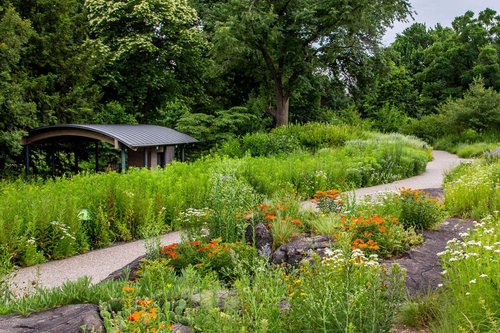
4 min read
No Mow May: A Pollinator Love Story
Conscientious inaction can be the key to biodiversity. For the modern gardener, what we choose not to do, not to buy, or not to mow is sometimes of greater consequence to the natural environment.
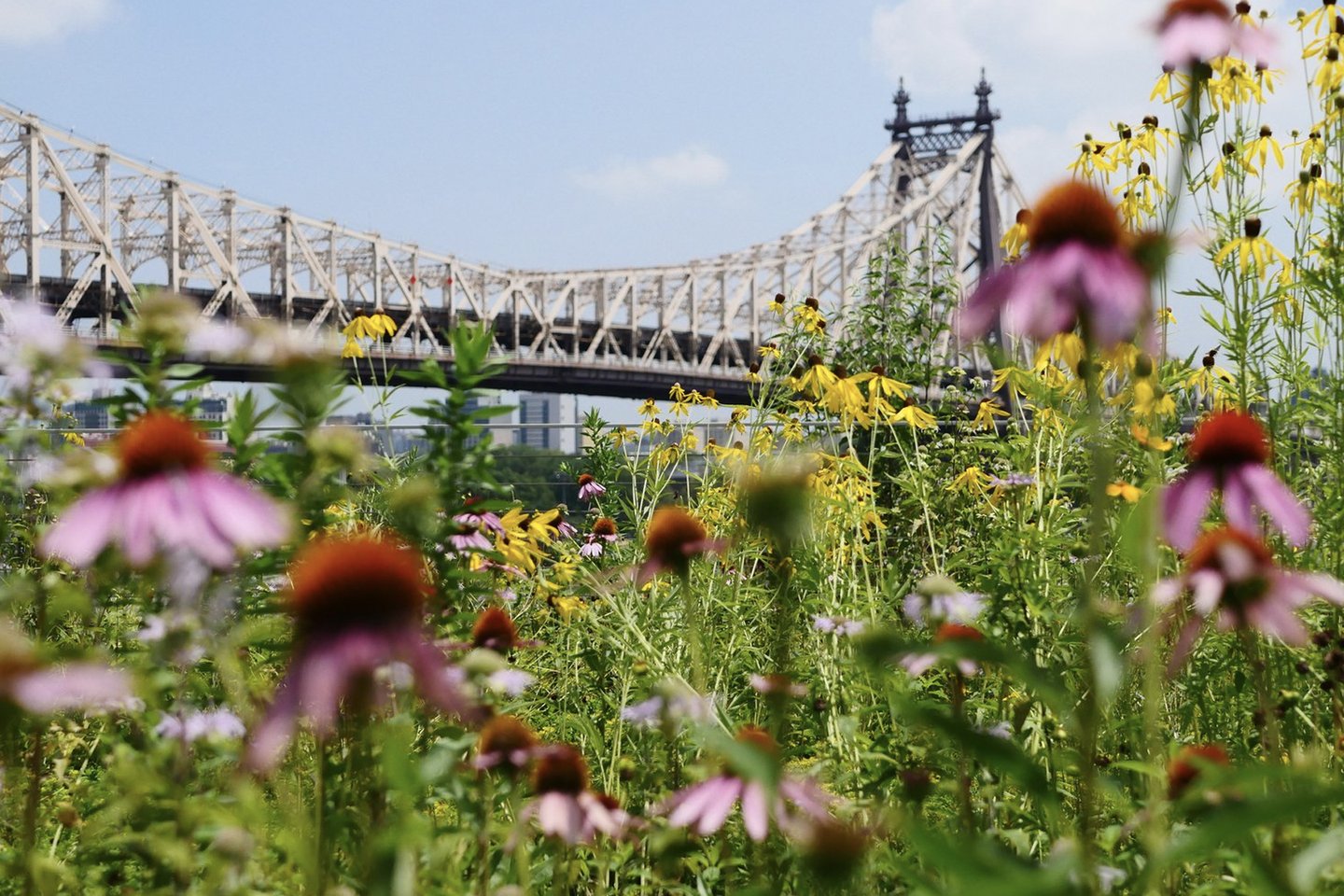
4 min read
WLLW delves into the science behind the positive health impacts of gardening, explores its role in strengthening community bonds and provides practical tips for those looking to cultivate their own garden sanctuary.
Science tells us that regular gentle activity is crucial for longevity, that meditation is the key to mental health and that going outside can boost your mood, lower your heart rate, increase energy levels and improve digestion. However, with life, schedules, work and family there’s seldom time to do it all. Unless you’re a gardener, in which case you’re likely ticking all those boxes. Beyond individual benefits, effective stewardship of the natural world promotes biodiversity and ecological health, contributing to cleaner air, greener cities and a stronger sense of civic community.
Is gardening the ultimate panacea? Let’s take a look.
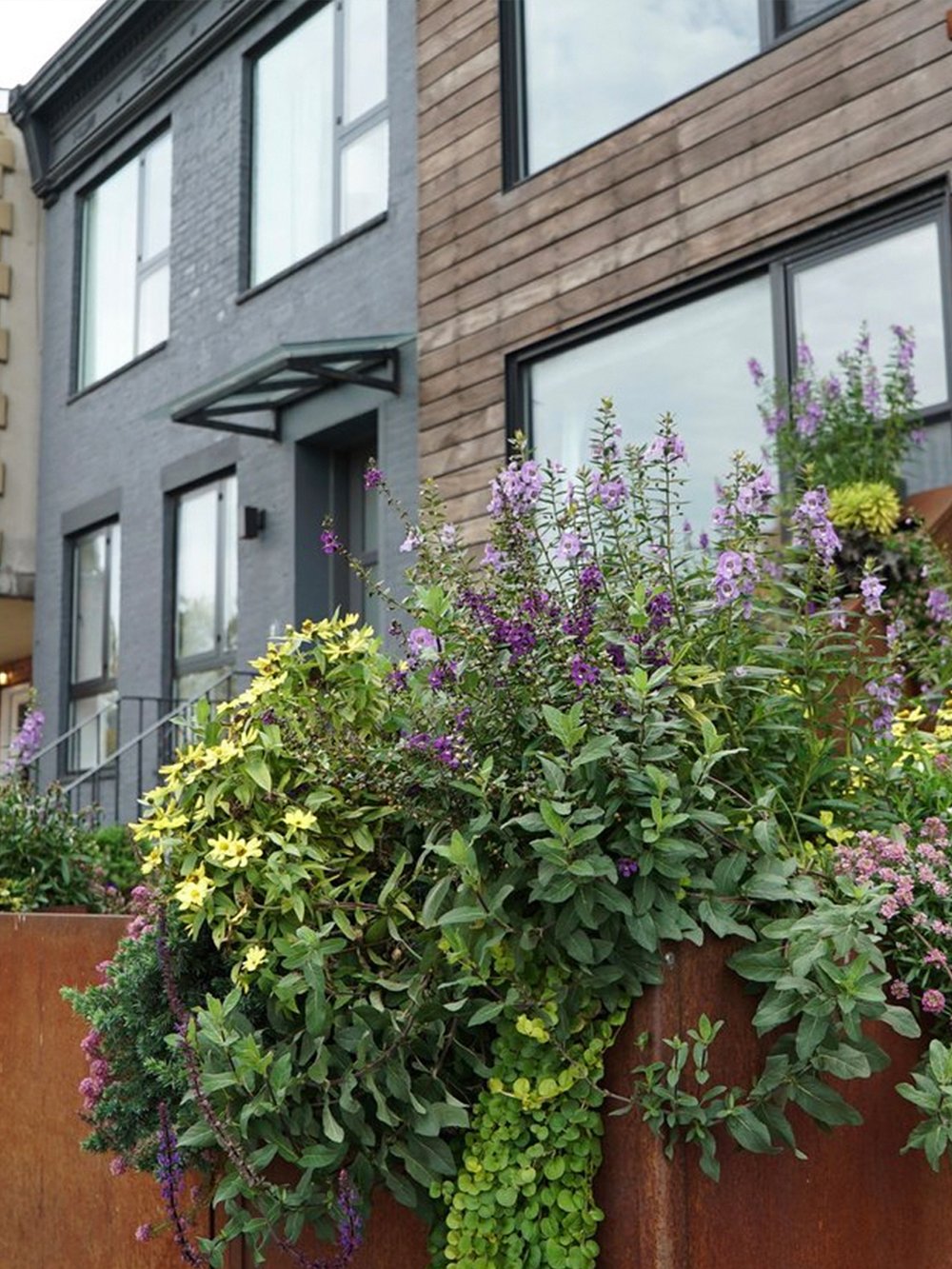
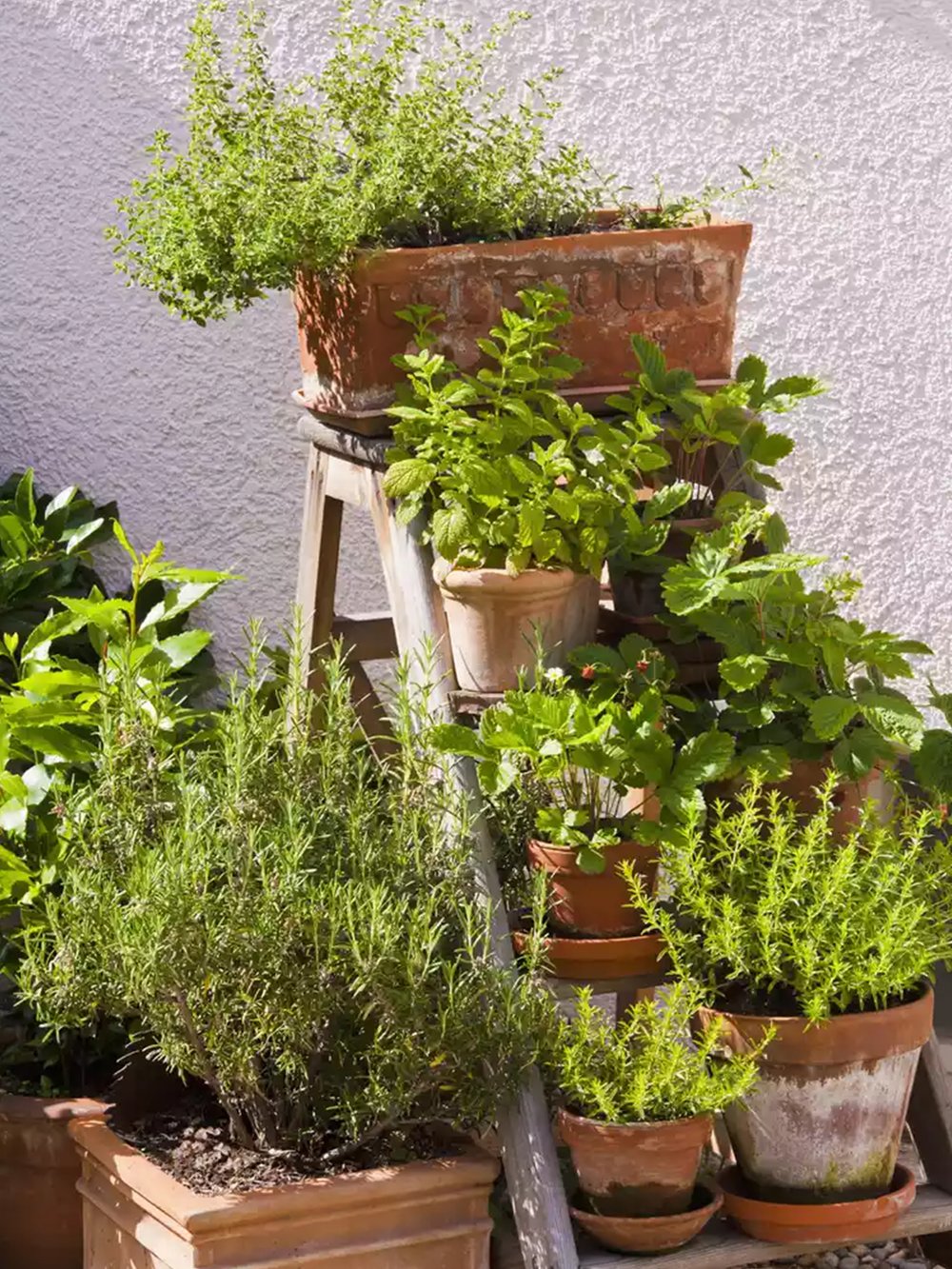
The processes involved in gardening shape key facets of physical and mental health, including diet, physical activity, community connections, stress levels and a deeper connection to nature.
If you feel happier when you’ve got your hands in potting soil there’s a scientific reason. Digging in soil stirs up microbes which, when inhaled, can encourage the production of serotonin, leading to increased feelings of happiness.
The soil microbe Mycobacterium vaccae has been shown to potentially simulate the same impact on neurons as antidepressant drugs. Combined with the meditative sounds of nature and the self reflection that accompanies routine tasks, gardening can have direct antidepressant effects.
Beyond mental health and stress relief, gardening as part of a regular routine has been shown to support holistic physical health.
People tend to breathe deeper when outside. This helps to expel pollutants from the lungs, enhance digestion, boost the immune system and elevate oxygen levels in the bloodstream. Spending time outdoors can reduce heart rate and muscle tension. Sunlight lowers blood pressure and increases vitamin D levels and, according to the Center for Disease Control, gardening can burn over 300 calories per hour.
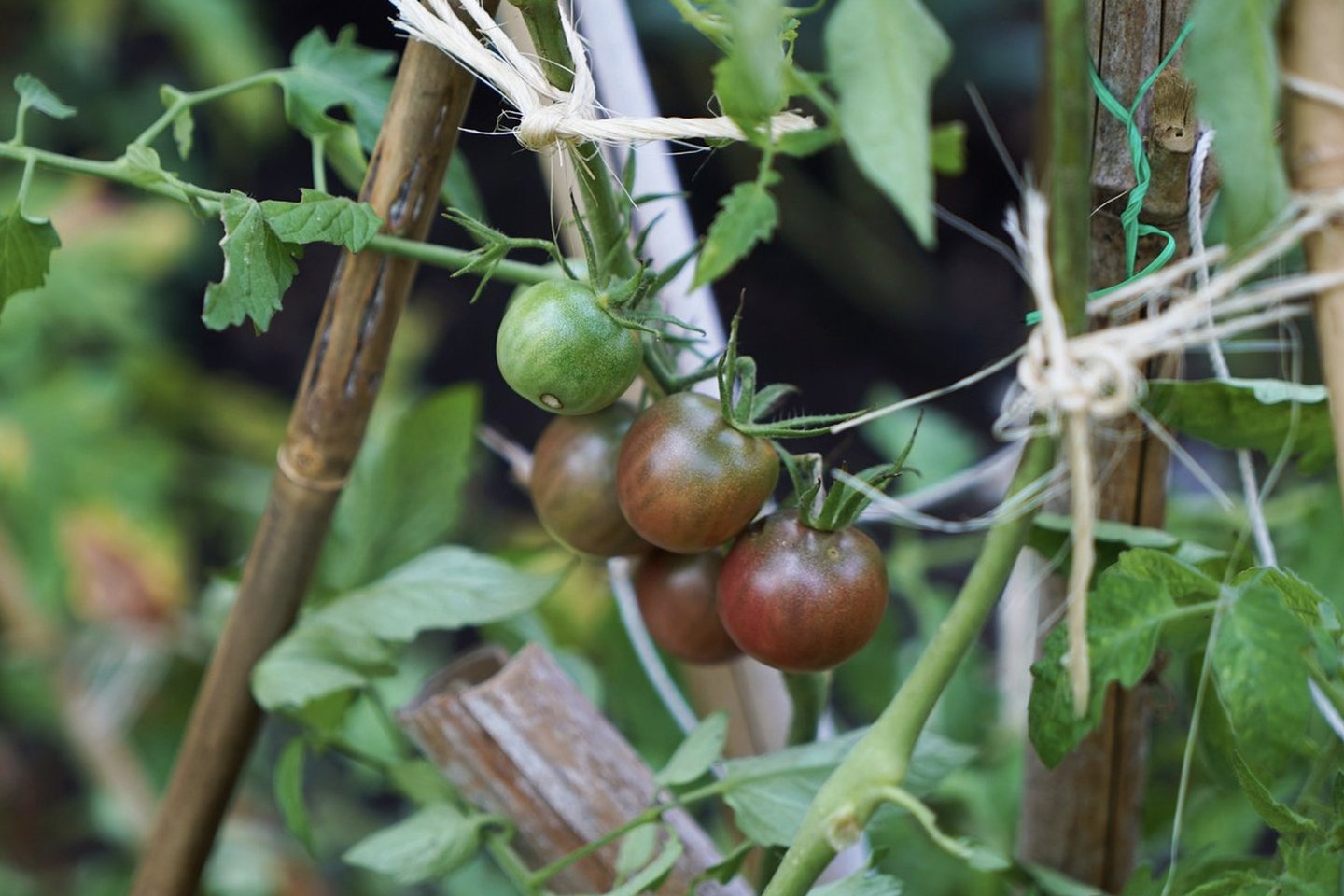
When you grow your own food, you have direct access to fresh produce that contains higher levels of vitamins, minerals and antioxidants compared to that which has been stored or traveled long distances to reach your plate. You’ll also avoid commercial pesticides, herbicides and fertilizers if you grow organically.
According to a Japanese study, just viewing plants has altered EEG recordings, showing reduced stress, fear, anger and sadness as well as reduced blood pressure and muscle tension.
The medical field has also benefited from ‘green care’. While the studies are new, horticulture therapy, a facet of ‘green care’, is not. In a pioneering study by the environmental psychologist Roger Ulrich, patients in post-operative wards with views of plants and trees experienced improved moods and required fewer painkillers. This exposure also decreased surgical complications and shortened hospital stays.
“I cannot say exactly how nature exerts its calming and organizing effects on our brains, but I have seen in my patients the restorative and healing powers of nature and gardens, even for those who are deeply disabled neurologically. In many cases, gardens and nature are more powerful than any medication.”
Oliver Sacks, neurologist and author
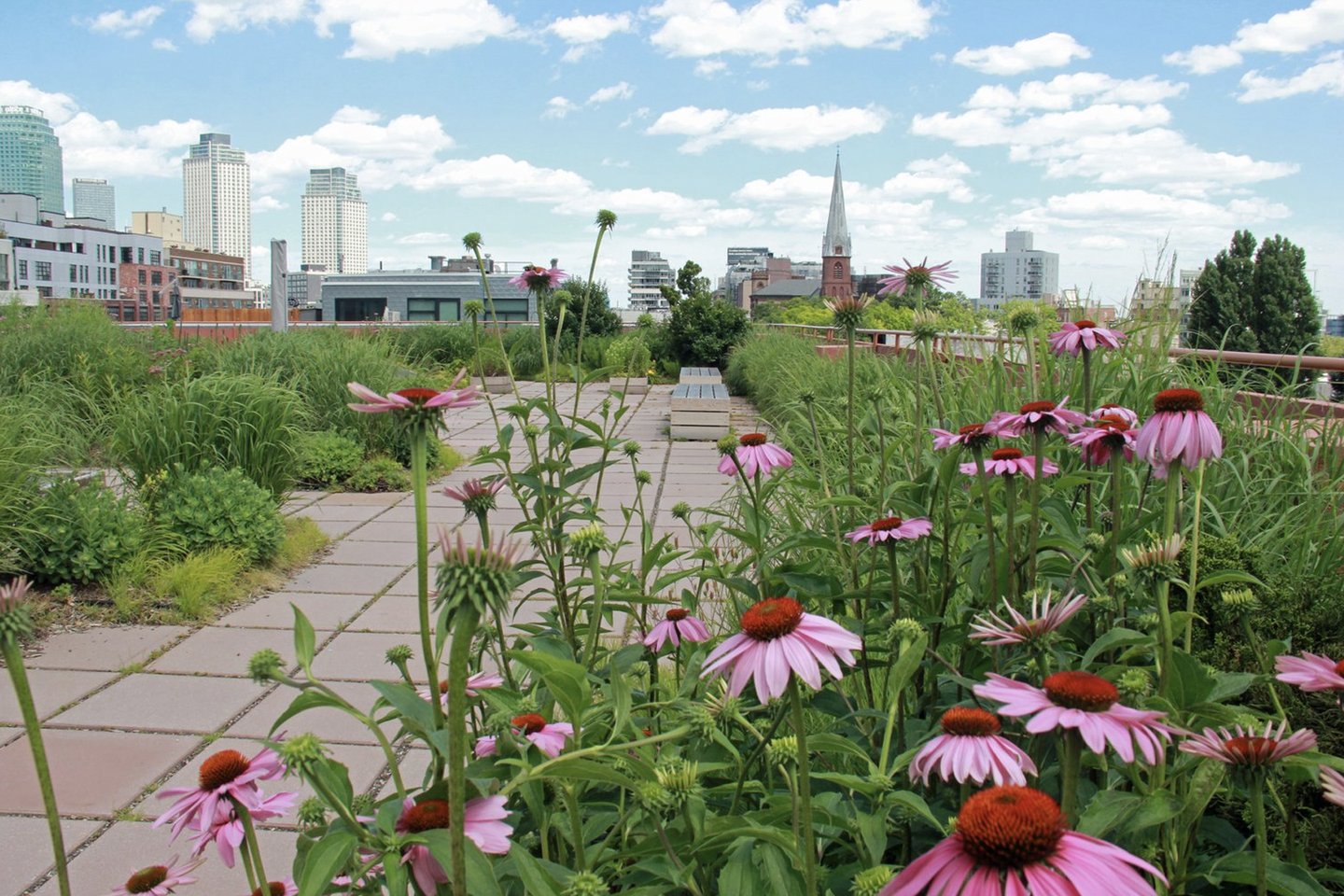
Community gardens and urban green spaces play a pivotal role in enhancing environmental health and urban livability. They improve air quality and act as carbon sinks for pollutants like carbon dioxide. In return, they release oxygen, thus acting as natural air purifiers.
Green spaces also provide shade in concrete-heavy environments, which helps reduce the ambient temperature. Community gardens can contribute to mitigating noise pollution, where vegetation acts as a sound barrier, absorbing and deflecting noise, creating more serene environments. Projects such as the Brooklyn Grange Farm and Morgan North in midtown contribute to a greener New York City, connecting locals with the environment, providing educational opportunities and widening access to fresh produce.
Research from NC State University reveals that community gardeners consumed fruits and vegetables 5.7 times daily, compared with home gardeners (4.6 times) and nongardeners (3.9 times). Moreover, 56 percent of community gardeners met national recommendations to consume fruits and vegetables at least five times per day, compared with 37 percent of home gardeners and 25 percent of nongardeners.
The Ron Finley Project is a non-profit that repurposes neglected urban patches to create community vegetable gardens in neighborhoods of Los Angeles with high obesity rates and little access to fresh produce, known as food deserts. "If kids grow kale, they eat kale. If they grow tomatoes, they eat tomatoes. But if they’re not shown how food affects the mind and the body, they blindly eat whatever’s put in front of them,” he says.
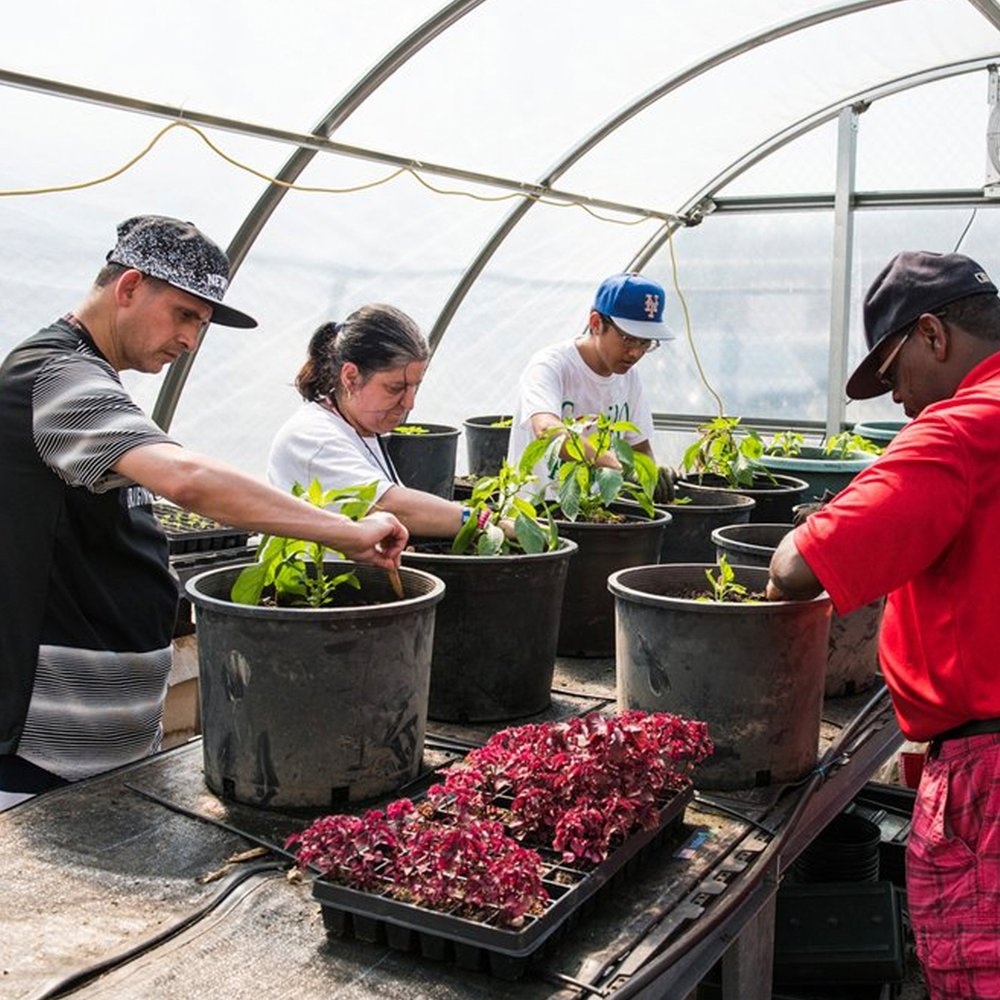
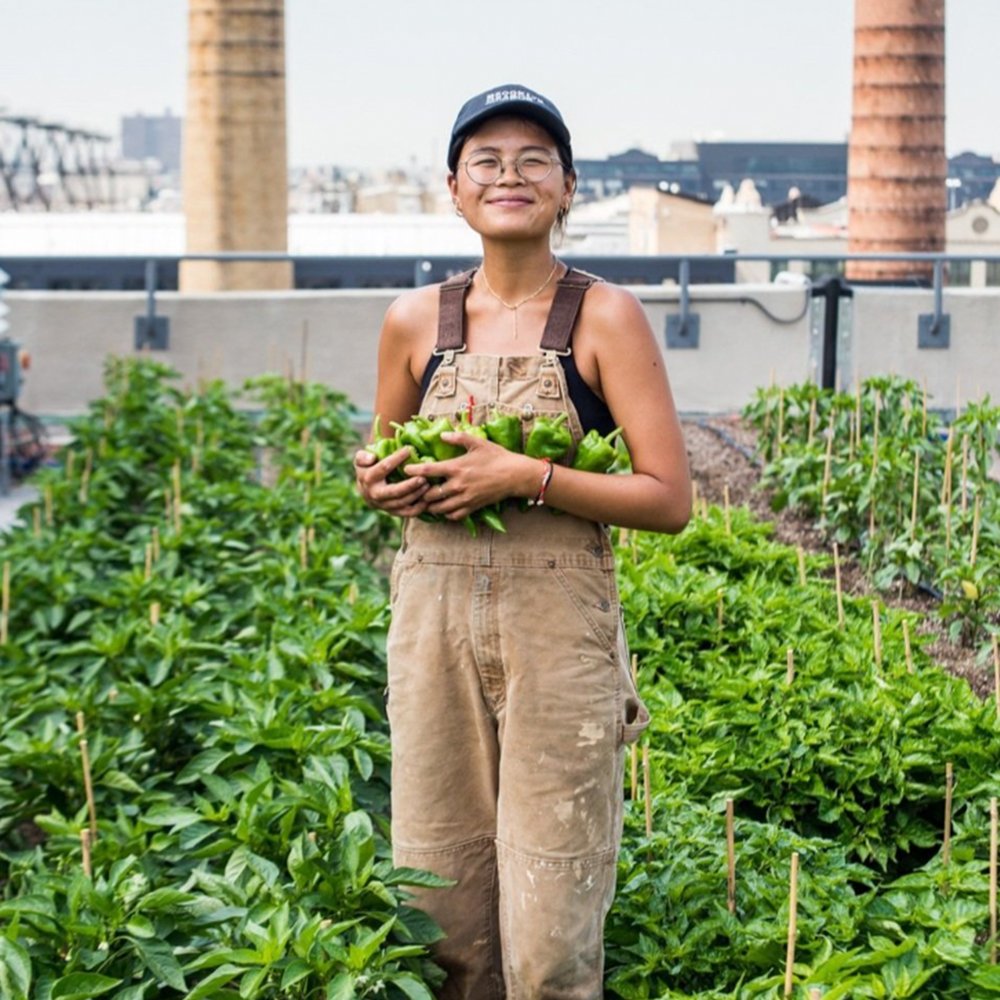
Incorporating more greenery through community gardens not only fosters ecological gains but also bolsters social wellbeing and the ties that bind communities together, making them healthier, and more pleasant places to live.
Community gardens leverage humans’ natural instinct to gather and divide work for a collective result. They offer a coregulation, with studies showing that community gardeners have higher levels of resilience and optimism than the non-gardening control group with increased opportunities for altruism and shared resources.
Once described as a “church without walls,” Detroit’s Oakland Avenue Urban Farm brings people together through youth education programs, cultural gathering spaces and efforts to tackle food insecurity through collective farming practices.
Positive results in community farming grow beyond an individual's mental and physical health. A survey of 29 community gardens across Denver, CO, found that they collectively reinforced social connections across different cultural backgrounds and increased acts of reciprocity and civic engagement in their respective neighborhoods.
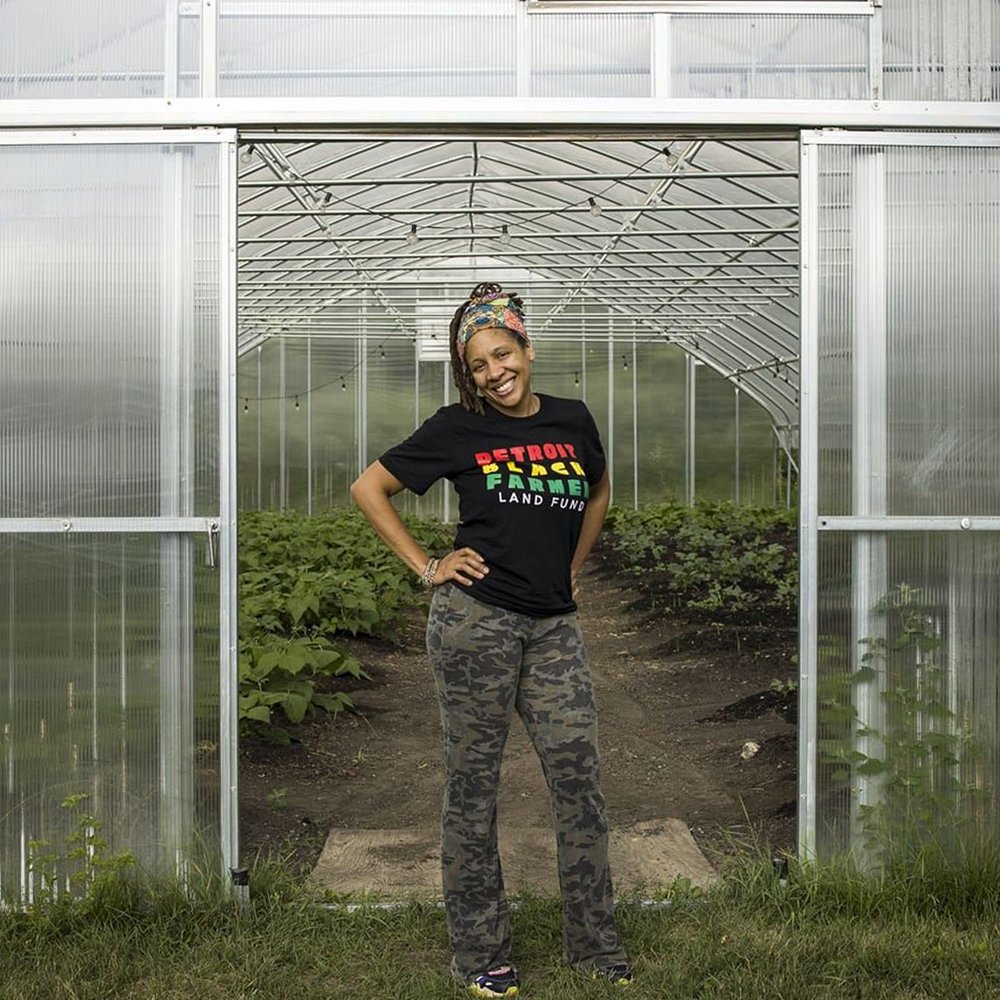
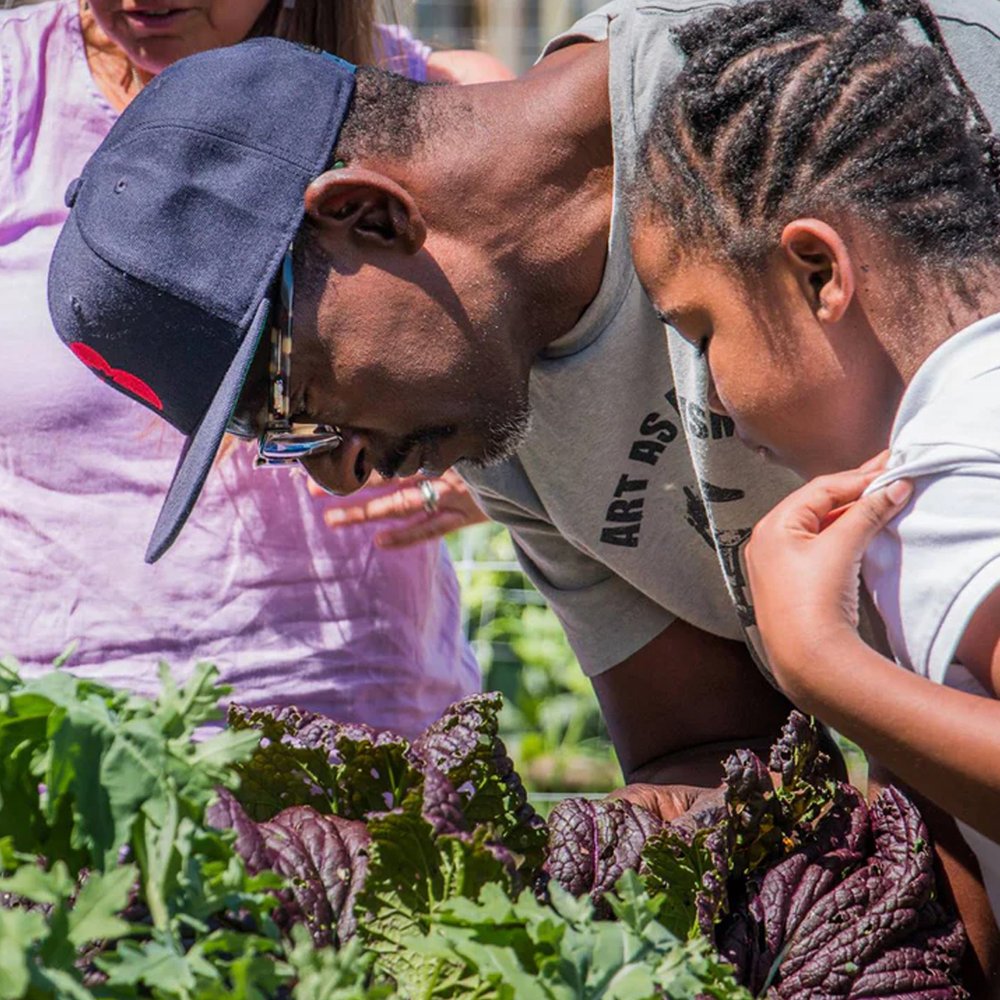
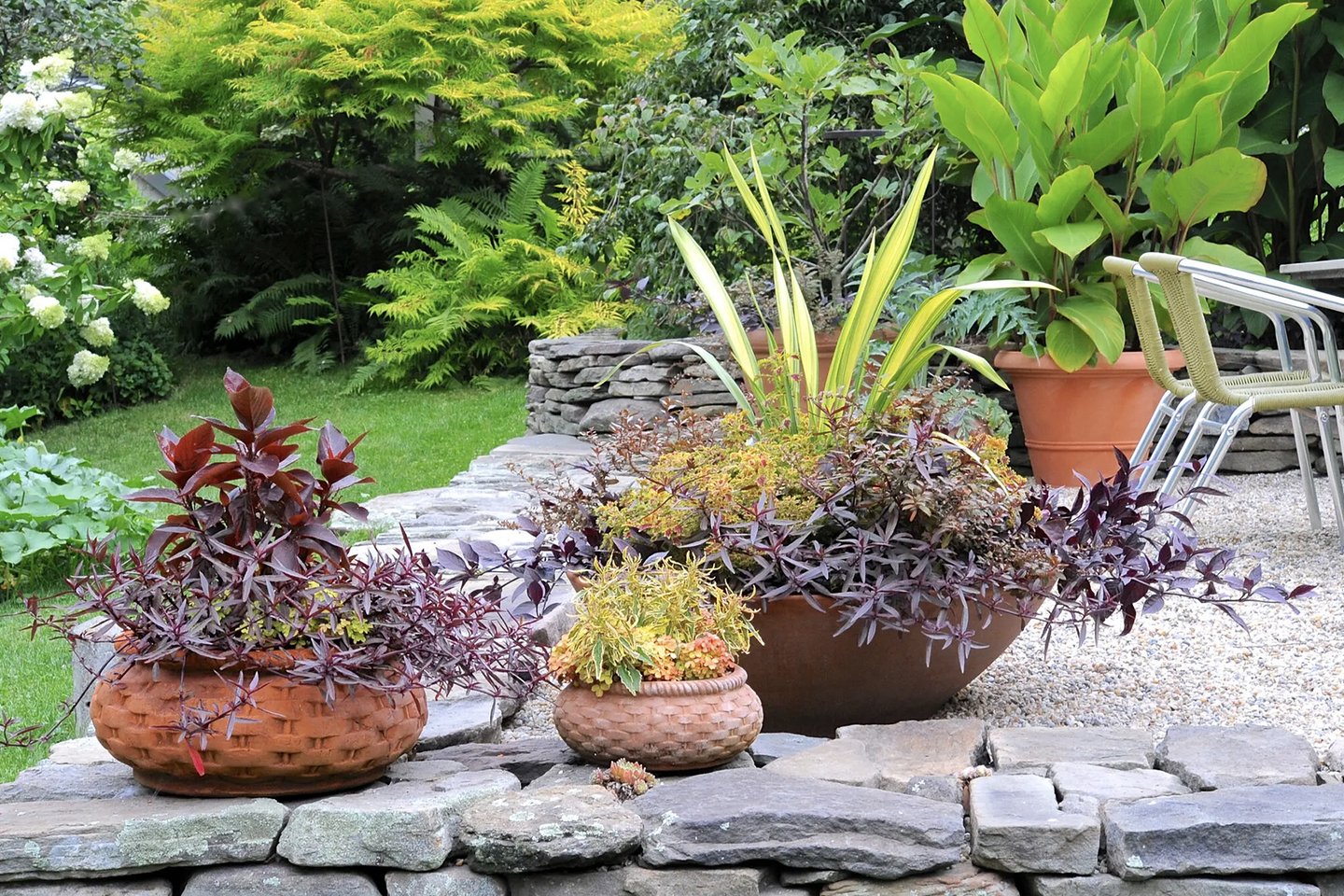
Photography: Brooklyn Grange, Westend61/Getty Images, The Ron Finley Project, Oakland Avenue Urban Farm, Margaret Roach
Further Info
Gardening for health: a regular dose of gardening (Royal College of Physicians)
Does gardening have health benefits? (Ohio State Health & Discovery)
Find a Garden - Share a Garden (American Community Garden Association)
Why Gardening Offers a ‘Psychological Lifeline’ in Times of Crisis (New York Times)


4 min read
Conscientious inaction can be the key to biodiversity. For the modern gardener, what we choose not to do, not to buy, or not to mow is sometimes of greater consequence to the natural environment.

3 min read
Bringing nature into homes through biophilic design improves wellbeing and connects us to the natural world.